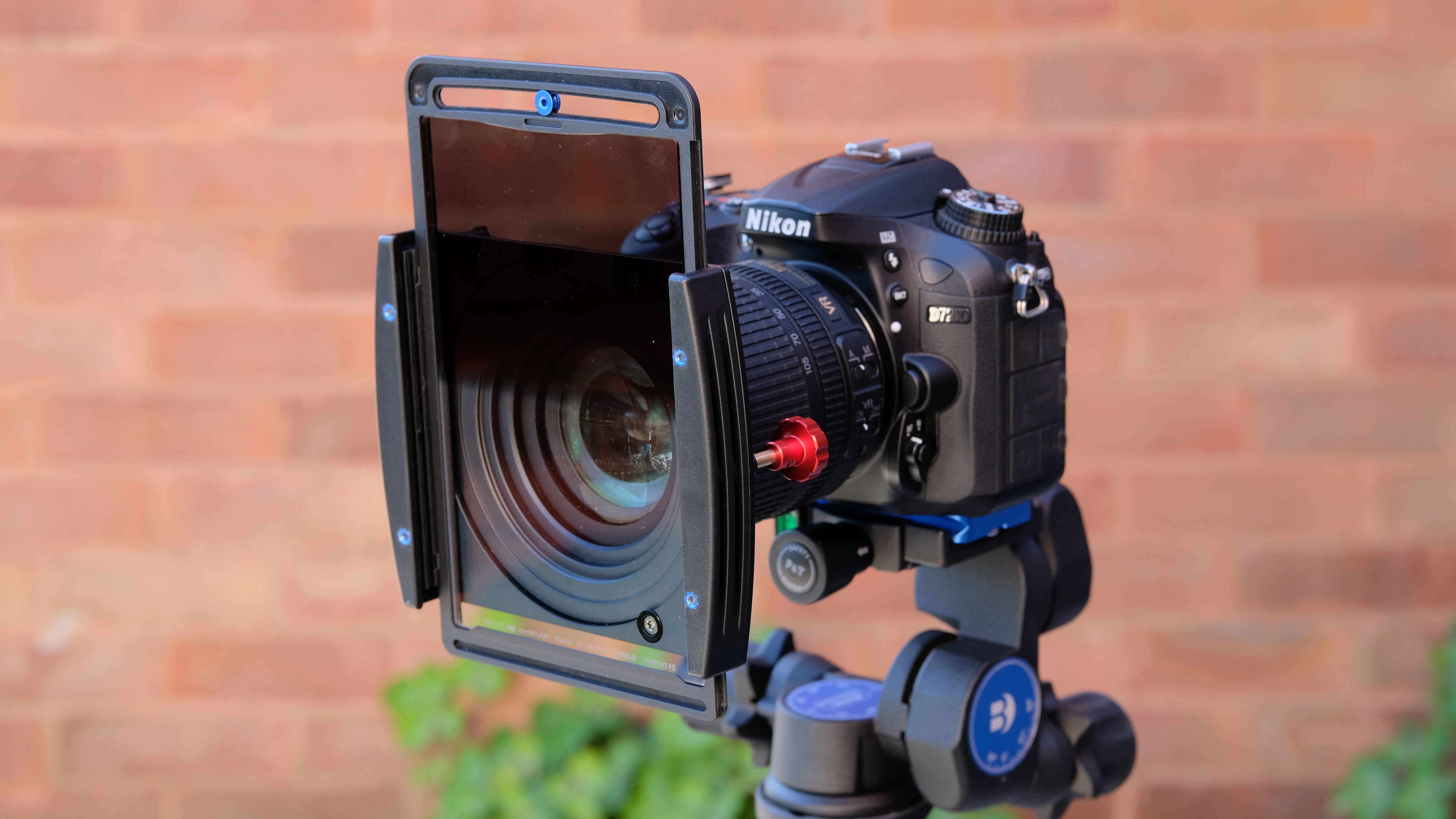TechRadar Verdict
Benro's aiming at serious/pro photographers with its new FH100M2 filter holder and glass filters, and that’s obvious in the build, performance… and price. Once you learn the controls, the speed, control and smoothness are excellent, especially when you only have minutes (or even seconds) to frame and filter the perfect shot before the light changes.
Pros
- +
Build quality and design
- +
Geared filter adjustment
- +
Resin or premium glass filters
- +
Circular polariser control
Cons
- -
Well priced, but not cheap
- -
Can be fiddly at first
Why you can trust TechRadar
Benro's new filter system doesn't just tick all the boxes for filter fans, it adds in some clever ideas that you won't see anywhere else.
Like other filter systems, it comes in two parts: the filters themselves, and the filter holders. The filters include graduated ND (neutral density) filters for toning down bright skies which would otherwise be overexposed, circular polarisers for darkening blue skies, bringing out clouds and subduing reflections, and ND filters for reducing overall exposure and allowing the long exposure times needed for those beautiful 'milky' water effects where choppy water takes on a silky sheen, and surf turns into a soft, smoky blur.
For graduated filters you need a square filter system so that you can slide the filter up and down in its holder to position the transition from light to dark right on the horizon, and Benro offers two. The FG100 is a regular affordable filter holder for more cost-conscious photographers, whereas the premium metal FH100M2 holder is the one tested here.
The key thing about the FH100M2 is its geared vertical positioning system. You don't slide filters directly into the holder in the normal way; instead, you fit them into a slim rectangular frame first. The holder comes with a 100 x 100mm square frame and a 100x150mm frame for ND grads, which are taller. Once the frame is slotted into the holder, you can wind it up and down in small, precise increments using an adjustment knob which engages with a toothed ridge on the filter frame.
We also tried out a selection of Benro's premium glass filters, which are coated rather than dyed like regular resin filters, for greater longevity and stability. These are pretty pricey compared to resin filters, but you can use Benro's cheaper resin filters in the FH100M2 holder too, or the glass filters in the cheaper FG100 holder if it comes to that. In fact, these filter systems are largely standardised across manufacturers, so you could even carry on using your existing 100mm filters and migrate to the Benro kit at your own pace.
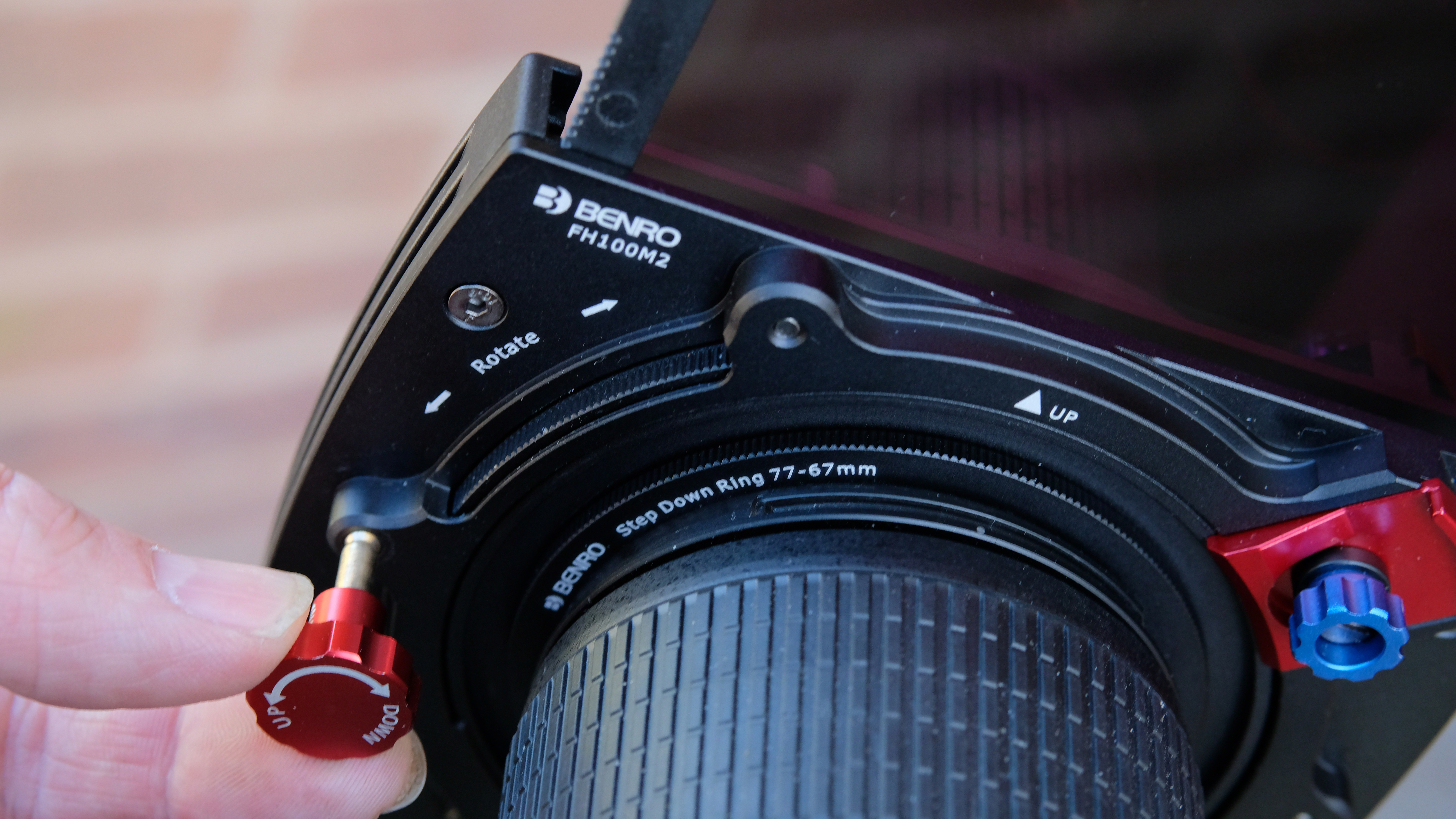
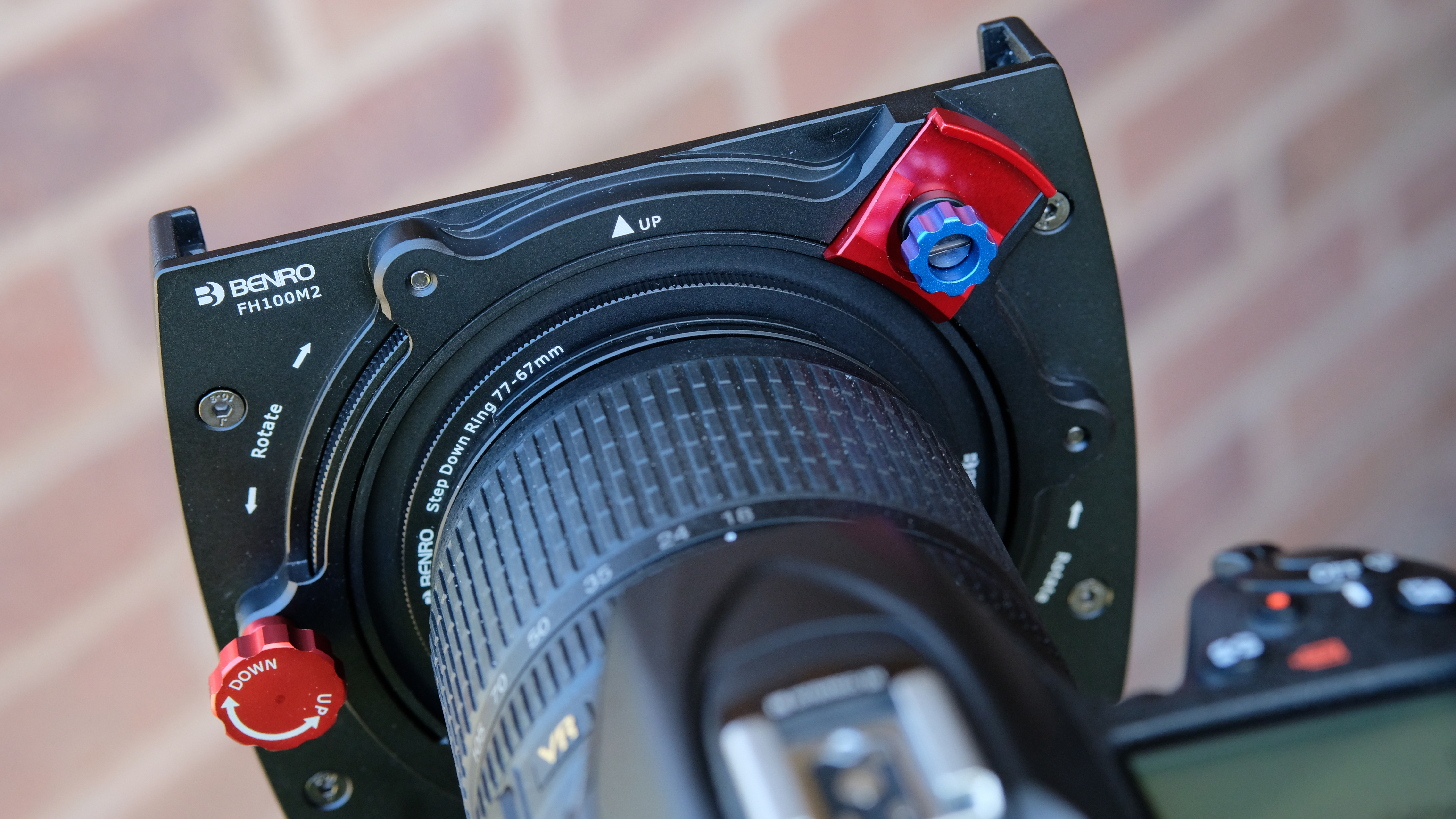
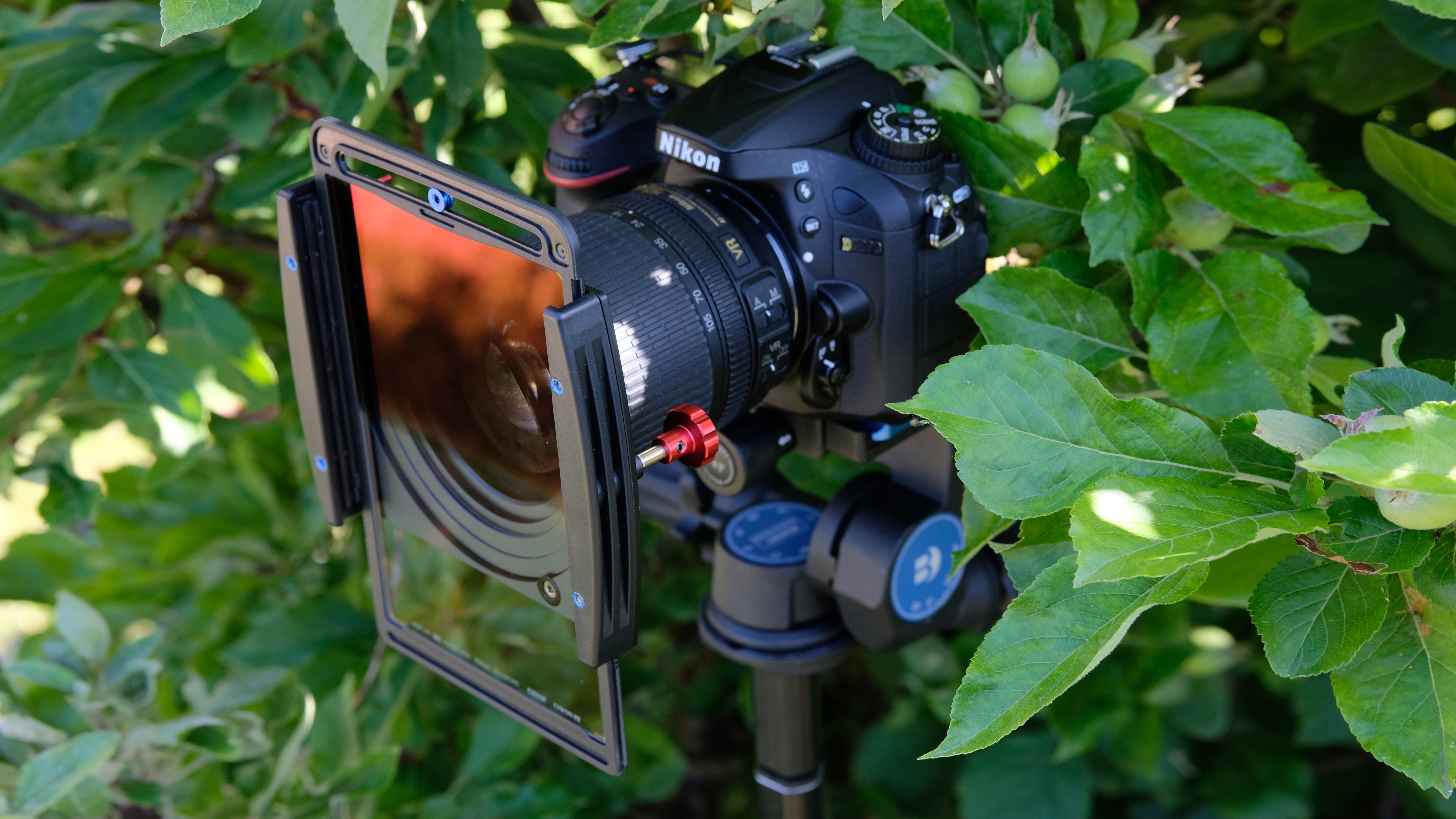
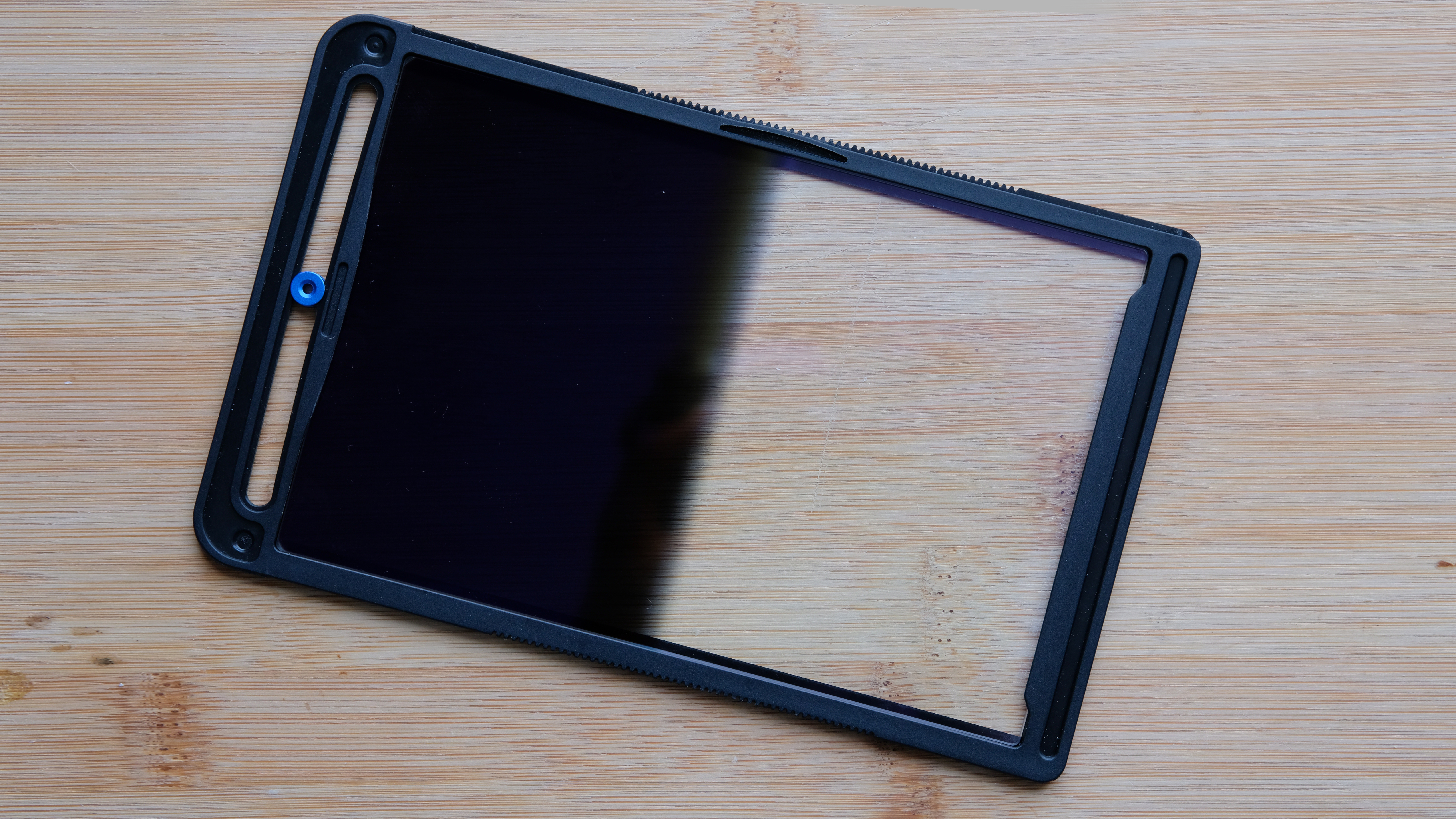
Build and handling
The FH100M2 holder comes with 82 and 77mm filter rings, but we used it on a Nikkor 18-105mm lens which needed a further 67mm step-down ring, bought separately. You screw the adaptor on to the front of the lens, then hook over the filter holder which is then held in place by a spring-loaded clamp. You tighten this down when you've got the filter holder rotated to the correct angle for your graduated filters.
Fitting the filters to the frames only takes a few moments once you've got the hang of it, and you can then adjust up to three filters (there are three slots) by pushing the adjustment knob in and out to engage with each one it turn. It's much more precise and controllable than regular friction fits.
If you need a circular polarising filter, this screws into the filter holder, where it can be rotated independently via a toothed wheel on the back of filter. You can then turn the polariser to get the desired effect without disturbing the other filters – it spins with just the right amount of resistance.
The design, materials and controls are first-rate, but there is a certain amount of fiddling about that goes with them so don't expect to be up to speed right away. Your first photo session is likely to be spent simply getting used to how this Benro filter holder works.
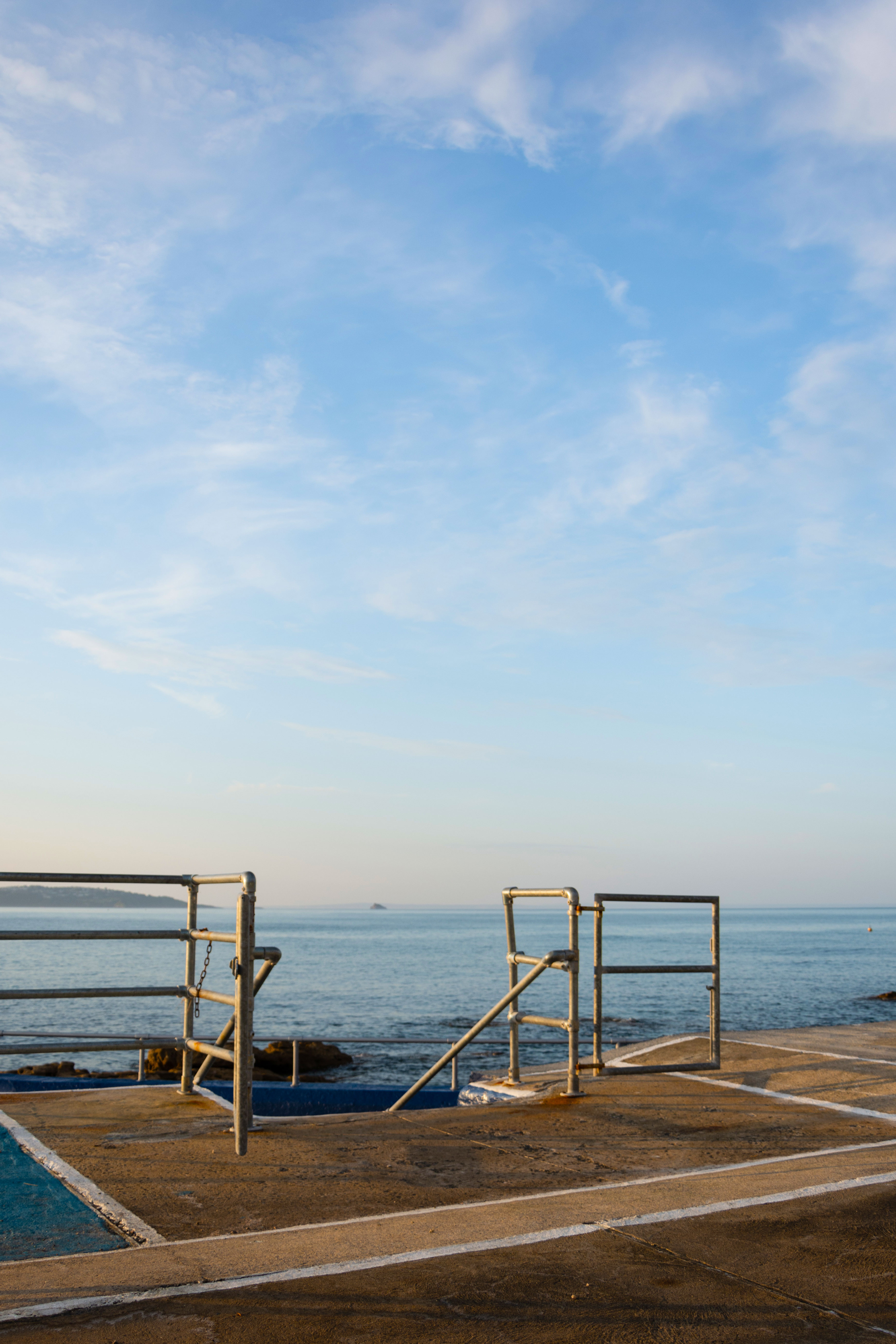
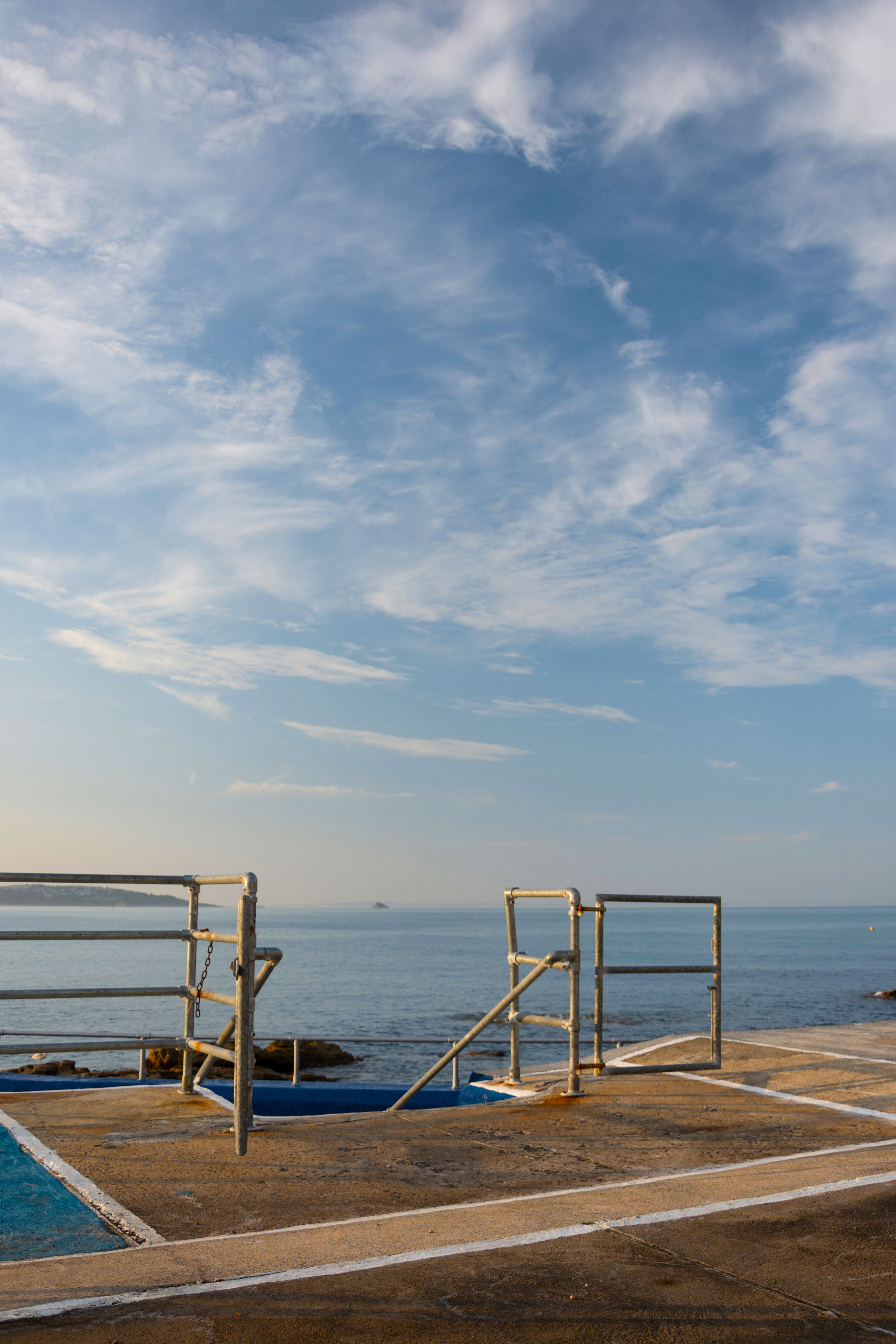
Performance
Benro used a complex optical collimator to show the effect of inserting regular resin filters into a light path, its own resin filters and then its glass filters. The results showed an obvious improvement in the sharpness of a test target with its own filters. An optical measuring tool like this doesn't exactly replicate real-world shooting, but it's an interesting comparison nonetheless. The aim, of course, is to create filters that produce the minimum possible image degradation.
Sharpness is only one factor, colour shifts are another. ND filters and grads frequently produce colour shifts, and while you can correct this in software later, but it's best if you don't have to in the first place. Our sample images showed no discernible colour shifts or loss of resolution – or, if there was any, the degradation was too small to notice.
Premium-quality filter systems aren't cheap, but if you intend shooting high-quality landscapes they do make a difference, not just in picture quality but ease of use and longevity. Benro is pitching both at amateur/enthusiast camera users with its basic FG100 holder and resin filters, but with the clever FH100G2 holder and glass filters we tried out, it's going for experts and pros.
Top-end filter systems aren't cheap, so a full kit could cost as much as a new lens (ouch), but the good news is that these filter systems are interchangeable – you can use your existing 100mm filters with this new holder, or Benro's new premium glass filters with your existing holder. You can migrate to Benro’s new system at your own pace rather than paying for it all at once.

Rod is an independent photographer and photography journalist with more than 30 years' experience. He's previously worked as Head of Testing for Future’s photography magazines, including Digital Camera, N-Photo, PhotoPlus, Professional Photography, Photography Week and Practical Photoshop, and as Reviews Editor on Digital Camera World.
